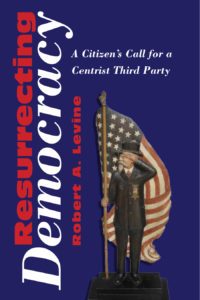
I am assuming that at some point the Covid 19 epidemic will be over. Either a vaccine will be created or effective treatment for the virus at all stages will be available. Whether it will take six months, a year or five years, no one knows for certain but it will happen. Another possibility is that there will be herd immunity with most of the population having been infected and recovered or died. But what will life be like after the virus is no longer a threat?
One of the factors that determines the ‘afterlife’ is how long the pandemic lasts. The longer it goes on, the more small businesses and restaurants will fail and be unable to return to life. Perhaps different individuals or families will take over the abandoned business or restaurants, but that will take considerable time. These people will have to acquire the capital, set up the business and get it going again. It will not happen overnight. Another factor that will determine recovery is how much the government is willing to spend to subsidize small businesses.
And the major cities will likely lose population as people move to the suburbs or more rural areas to lessen crowding and susceptibility to new pandemic agents. New office buildings will be unnecessary with more people working remotely from home. The feasibility of this, without loss of productivity, for a number of white collar businesses has been shown during the Covid epidemic. Companies are also able to keep tabs on their remote workers through various surveillance techniques to be certain that workers are not slacking off.
With less office space being needed in the cities and less residential space required with people moving out, the cities will shrink though the metropolitan areas may remain pretty much the same. It may also be that as the cities empty out, residential prices of apartments and houses for rent or sale will decrease significantly, becoming more attractive for young people and retirees to move back in. And the minority population may be able to find decent housing at reasonable prices for a change. Thus in time, the cities will grow again.
And the cities will continue to remain the centers of entertainment and culture where a critical mass of people is needed to put on performances of plays, concerts, operas, and so forth. Most performers or people in the arts will continue to reside in the cities. And bars and restaurants will come back over time with artists and young people looking for places to congregate. Sports stadiums also need a mass of people and remain in or near the cities.
Much research and development also requires a critical mass of people and laboratories with interactivity between people. This suggests that a lot of R and D will take place in cities or crowded suburban areas. Many universities will also continue to grow in urban areas as online teaching will not be considered comparable to classroom teaching. In addition, the universities will continue to be major bastions of R and D, either alone or in collaboration with technology and biotechnology companies.
Opening up will likely mean roads that are less crowded and public transportation that is less crowded with more people working remotely from home. There will also be less pollution and perhaps climate change will slow down for a while. In democratic nations, people may understand that they have control over the government and its policies and try and play a more active role by becoming better informed before voting.
Resurrecting Democracy

www.robertlevinebooks.com
Political junkie, Vietnam vet, neurologist- three books on aging and dementia. Book on health care reform in 2009- Shock Therapy for the American Health Care System. Book on the need for a centrist third party- Resurrecting Democracy- A Citizen’s Call for a Centrist Third Party published in 2011. Aging Wisely, published in August 2014 by Rowman and Littlefield. Latest book- The Uninformed Voter published May 2020
















